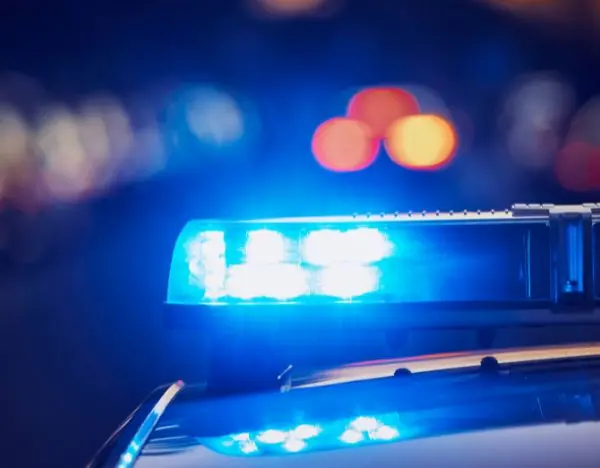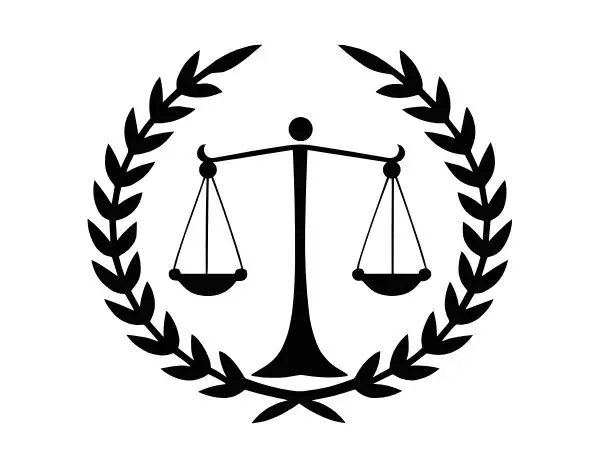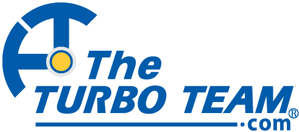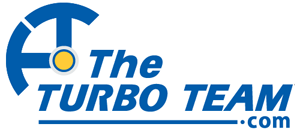What To Do If Stopped at a Buffalo DWI Checkpoint

In Buffalo, especially on weekends, holidays, and during special events, law enforcement regularly conducts DWI checkpoints as part of their strategy to combat impaired driving. At Trbovich Law Firm, we understand that even sober drivers may feel anxious when approaching these checkpoints. This guide will help you understand what Buffalo DWI checkpoints are, your rights during these encounters, and the appropriate steps to take if you're stopped.
What Are Buffalo DWI Checkpoints?
Buffalo DWI checkpoints (also called sobriety checkpoints) are temporary roadblocks where police officers stop vehicles according to a predetermined pattern to check drivers for signs of alcohol or drug impairment. These checkpoints are typically set up on roads with higher incidences of DWI arrests or accidents involving impaired drivers.
In Buffalo, these checkpoints are most commonly conducted during:
- Holiday weekends (Memorial Day, Fourth of July, Labor Day, Thanksgiving, Christmas, New Year's Eve)
- Major sporting events (Bills or Sabres games)
- Concerts and festivals
- Summer weekends, particularly near entertainment districts
- St. Patrick's Day and other celebration-heavy occasions
The Buffalo Police Department, Erie County Sheriff's Office, and New York State Police typically announce checkpoint operations publicly, though the exact locations are often not disclosed in advance.
What To Do If Stopped at a Buffalo DWI Checkpoint
Before You Encounter the Checkpoint
- Remain calm: Nervousness can sometimes be misinterpreted as intoxication. Take a deep breath and focus on driving safely.
- Have documents ready: Locate your license, registration, and insurance information before reaching the checkpoint to avoid fumbling through belongings, which might appear suspicious.
- Turn down music and roll down your window: This facilitates communication with officers and demonstrates cooperation.
- Turn on interior lights if it's dark: This courtesy helps officers see inside your vehicle and reduces their safety concerns.
During the Initial Checkpoint Stop
- Be polite and respectful: How you interact with officers can significantly impact your experience. Simple courtesy goes a long way.
- Provide requested documents promptly: Hand over your license, registration, and proof of insurance when asked.
- Minimize unnecessary movements: Excessive or erratic movements may raise suspicion.
- Consider your responses carefully: Brief, direct answers are generally best. Remember that you're not obligated to answer potentially incriminating questions.
- Don't volunteer additional information: Stick to answering the specific questions asked without elaborating unnecessarily.
If the Officer Suspects Impairment
- Remain respectful but aware of your rights: Continuing to be polite doesn't mean surrendering your constitutional protections.
- Consider field sobriety test requests carefully: These tests are often difficult to pass even for sober individuals due to nervousness, physical conditions, or environmental factors. You may politely decline, though this may influence the officer's decision-making.
- Understand breath test implications: In New York, refusing a preliminary breath test can result in a violation and fine, while refusing a chemical test after arrest triggers an automatic one-year license revocation.
- Request a DWI defense attorney if arrested: If detained, clearly state that you wish to speak with an attorney before answering questions or deciding on chemical testing.
What To Do If Arrested at a Buffalo DWI Checkpoint
If an arrest does occur:
- Exercise your right to remain silent: Beyond providing basic identifying information, avoid discussing the details of your situation.
- Request an attorney immediately: Clearly state that you wish to speak with a lawyer before answering questions or making decisions about chemical testing.
- Be aware of recording: Most police interactions are now recorded on body cameras or dashboard cameras. Assume everything you say or do is being documented.
- Take mental notes: Try to remember details about the checkpoint procedure, officer statements, and testing methods, as these might be relevant to your defense later.
- Comply with lawful orders: Even while asserting your rights, follow direct commands regarding physical movement, processing procedures, etc.
Are Buffalo DWI Checkpoints Legal?
While some states prohibit DWI checkpoints, they are legal in New York State. The U.S. Supreme Court has ruled that properly conducted sobriety checkpoints do not violate the Fourth Amendment's protection against unreasonable searches and seizures, provided they follow specific guidelines:
- Vehicles must be stopped in a predetermined, non-discriminatory pattern (such as every third vehicle)
- The checkpoint must be clearly marked with signs, lights, and uniformed officers
- The detention must be brief for most drivers
- The primary purpose must be highway safety, not general crime detection
- There must be advance notice to the public about the checkpoint operation (though not necessarily the exact location)
In Buffalo, law enforcement agencies are generally careful to adhere to these requirements to ensure the legality of their checkpoints.
What Happens at a Buffalo DWI Checkpoint?
When you approach a Buffalo DWI checkpoint, you'll typically encounter:
- Advance warning signs indicating a sobriety checkpoint ahead
- Cones or other traffic control devices channeling vehicles
- Uniformed officers directing traffic
- A designated stopping area with additional officers
During the initial interaction, an officer will typically:
- Ask for your driver's license, registration, and proof of insurance
- Ask if you've consumed any alcohol or drugs
- Observe your behavior, speech patterns, and physical appearance
- Look for visible open containers or drug paraphernalia
- Note any detectable odors of alcohol or marijuana
This initial screening lasts only about 20-30 seconds for most drivers. If the officer doesn't observe any signs of impairment, you'll be allowed to proceed.
If, however, the officer does suspect impairment, you'll be directed to a secondary screening area where you may be asked to:
- Perform field sobriety tests
- Take a preliminary breath test (PBT)
- Answer more detailed questions about your activities
Your Rights at Buffalo DWI Checkpoints
When stopped at a Buffalo DWI checkpoint, you retain important constitutional rights:
- You must provide your license, registration, and insurance when requested
- You have the right to remain silent beyond basic identifying information
- You are not legally required to answer questions about where you've been or whether you've been drinking
- You may refuse field sobriety tests, though there may be consequences for this refusal
- You may decline a preliminary breath test at the roadside, although this refusal can be used as evidence against you and may lead to license suspension
- If arrested, you have the right to speak with an attorney before deciding whether to submit to chemical testing at the station
Understanding these rights is essential, though exercising them requires careful consideration of the circumstances.
Common Mistakes to Avoid at Buffalo DWI Checkpoints
Several common errors can complicate your situation at a DWI checkpoint:
- Attempting to avoid the checkpoint: Making a U-turn or suddenly turning to avoid a checkpoint often provides reasonable suspicion for officers to stop you individually.
- Being argumentative or confrontational: Challenging the legality of the checkpoint at the scene isn't productive and may escalate the situation.
- Volunteering too much information: Detailed explanations about where you've been or what you've consumed can provide evidence that might be used against you.
- Consenting to vehicle searches: Officers need consent or probable cause to search your vehicle. You can respectfully decline search requests.
- Taking field sobriety tests if you have physical limitations: Medical conditions, injuries, certain medications, or even inappropriate footwear can cause poor performance regardless of sobriety.
Defense to Buffalo DWI Checkpoint Arrests

If you're arrested at a Buffalo DWI checkpoint, several potential defense strategies may apply:
- Checkpoint legality: Was the checkpoint properly established, announced, and operated according to constitutional requirements?
- Stop procedure: Were vehicles selected according to a neutral formula, or was there evidence of targeting?
- Reasonable suspicion: Did officers have legitimate reasons to escalate from the brief initial stop to a more extensive investigation?
- Testing procedures: Were field sobriety tests and chemical tests administered properly according to established protocols?
- Alternative explanations: Could factors other than impairment explain observed behavior or test results?
At Trbovich Law Firm, we carefully examine each of these potential avenues when building a defense strategy for clients arrested at Buffalo DWI checkpoints.
If Arrested at a DWI Checkpoint: Here's How a DWI Defense Lawyer Can Help
At Trbovich Law Firm, we understand that being arrested at a Buffalo DWI checkpoint can be a frightening and disorienting experience that threatens your freedom, driving privileges, and financial stability. A skilled DWI defense lawyer provides critical assistance that can significantly impact the outcome of your case through multiple strategic approaches.
- Checkpoint legality analysis: Our attorneys thoroughly evaluate whether the Buffalo DWI checkpoint was established and operated according to constitutional requirements, potentially identifying procedural violations that could render the entire stop invalid.
- Stop procedure scrutiny: We investigate whether vehicles were selected according to a neutral, predetermined pattern as legally required, since discriminatory or random selection may provide grounds for challenging all evidence obtained during your stop.
- Officer conduct review: Our team examines whether officers followed proper protocols during your interaction, looking for instances where they may have exceeded their authority or violated your constitutional rights during questioning or testing.
- Field sobriety test challenges: We assess whether standardized tests were administered correctly in appropriate conditions, as Buffalo's weather, road surfaces, or your physical limitations may have affected your performance regardless of impairment.
- Breathalyzer test evaluation: Our lawyers investigate the maintenance records, calibration documentation, and administration procedures for any breath testing device used, often uncovering issues that cast doubt on test accuracy.
- Blood test scrutiny: We examine the complete chain of custody for blood samples, verification of proper chemical testing methods, and qualifications of testing personnel to identify potential weaknesses in the prosecution's evidence.
- Reasonable suspicion challenges: Our DWI defense attorneys analyze whether officers had legitimate reasons to escalate your checkpoint stop to a more extensive DWI investigation, as mere presence at a checkpoint doesn't justify comprehensive sobriety testing.
- Constitutional rights protection: We ensure your Fourth Amendment rights against unreasonable search and seizure and Fifth Amendment rights against self-incrimination were respected throughout the checkpoint process.
- Video evidence analysis: Our team carefully reviews any body camera, dashboard camera, or checkpoint surveillance footage to identify inconsistencies between written reports and what actually occurred during your stop.
- Witness testimony development: We locate and interview potential witnesses from the checkpoint scene who may have observed the procedures used or your condition, providing counterevidence to officer testimony.
- Medical condition documentation: Our lawyers help gather evidence about medical conditions, physical limitations, or medications that might explain symptoms mistaken for intoxication or affect test results despite sobriety.
- Case law application: We leverage precedent-setting legal decisions regarding DWI checkpoints in New York to support motions to suppress evidence or dismiss charges when applicable to your specific situation.
- DMV hearing representation: Our attorneys advocate for you at administrative license hearings, fighting to preserve your driving privileges while your criminal case proceeds through the court system.
- Negotiation leverage creation: We identify procedural errors and evidentiary weaknesses to build negotiating leverage for potential reduction or dismissal of charges before trial becomes necessary.
- Comprehensive trial preparation: If your case proceeds to trial, our team develops compelling arguments challenging the checkpoint's operation, officer testimony, and scientific evidence to create reasonable doubt regarding guilt.
Protect Your Rights at Buffalo DWI Checkpoints
At Trbovich Law Firm, we understand the complexities of DWI checkpoint procedures and the potential defenses available if your rights were not fully respected. If you've been arrested at a Buffalo DWI checkpoint, contact us promptly for a consultation to discuss your specific situation and explore all available options for your defense.

